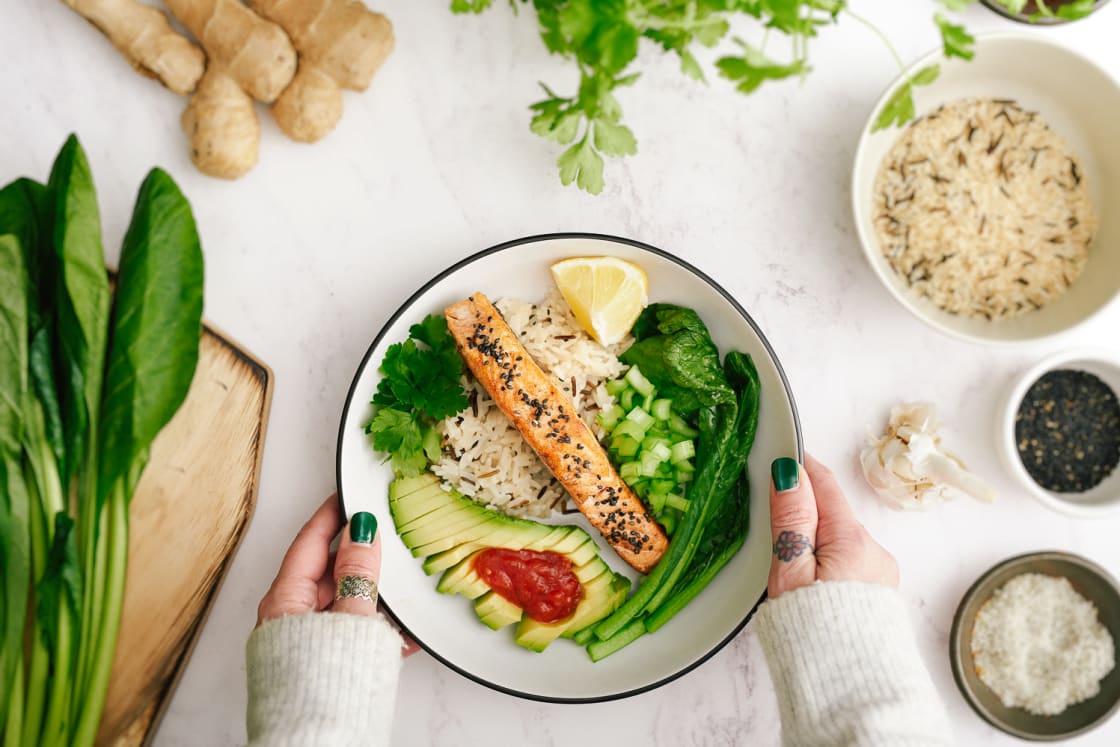5 Things To Include In Your Diet That May Ease The Physical Effects Of Trauma, From Mark Hyman, MD
Trauma can have a variety of emotional and physical impacts on the body. Trauma has been related to a variety of physical illnesses, including gastrointestinal, cardiovascular, neurological, and other conditions. However, as functional medicine specialist Mark Hyman, M.D. recently stated on Instagram, the foods we eat may be able to help alleviate some of the symptoms of trauma.
1. Probiotics and fermented foods
According to Hyman, the microbiome suffers when the body is under stress caused by trauma. As a result, eating fermented foods and probiotics can help to repopulate the stomach with beneficial bacteria. Kimchi, sauerkraut, miso, and a good probiotic supplement come to mind.
2. Seafood and omega-3 fatty acids
Seafood and omega-3 fatty acids are also beneficial to both the gut and the brain, according to Hyman. You can eat more seafood throughout the week, as well as supplement omega-3s and fish oil, which aid with gut and brain support, according to his post.
3. Fibre
Fiber is found in almost every vegetable, as well as several fruits, grains, legumes, nuts, and seeds. "Fiber feeds the microbiome, which then activates the vagus nerve, which ensures healthy brain function," Hyman says.
While trauma can have a harmful impact on our nervous system, activating the crucial vagus nerve is one way to begin to restore balance. "The more we stimulate the vagus nerve, the more we promote the soothing effects of the parasympathetic (or'rest and digest') nervous system and balance the stimulating effects of the sympathetic (or 'fight or flight') nervous system," integrative neurologist Ilene Ruhoy, M.D., Ph.D., wrote for mbg.
4. Spices that are anti-inflammatory
Inflammation, as Hyman puts it, "is a response the body has when it is confronted with trauma." When inflammation becomes chronic, it can cause a variety of problems, including fatigue, digestive problems, eczema, and more. "Include anti-inflammatory spices like turmeric that assist to reduce inflammation in the body," he advises. Ginger, cloves, cinnamon, rosemary, sage, and thyme are some other herbs and spices to consider.
5. The use of a multivitamin
Last but not least, Hyman emphasizes the necessity of taking a high-dose multivitamin of good quality. He mentions that after an earthquake in New Zealand, participants were given multivitamins. When compared to the control group, individuals who took a high dose multivitamin reported a larger recovery in mood, anxiety, and vitality four weeks following the earthquake. Micronutrients could be a "inexpensive and viable treatment for acute stress following a natural disaster," according to the study's authors.
The takeout.
When we're traumatized, we typically reach for comfort foods because they temporarily lower our stress hormones while concurrently increasing endorphins, dopamine, and serotonin levels, as Hyman points out. This is perfectly reasonable. However, comfort foods can have the opposite effect on the trauma reaction after a while (more on that topic here).
"At some point, it becomes vital to reverse the dietary decisions to help reduce distress," he explains. While a healthy diet will not be able to heal trauma on its own, it may make it feel more tolerable over time.

